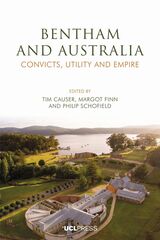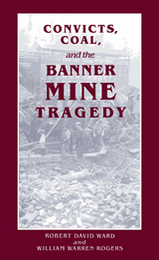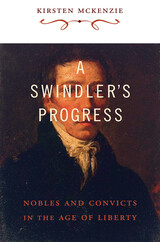
This volume considers Jeremy Bentham’s Australian writings. In the first part of the volume, Bentham’s works are placed in their historical contexts, while the second part provides a critical assessment of the historical accuracy and plausibility of Bentham’s arguments against transportation from the British Isles. In the third part, attention turns to Bentham’s claim that New South Wales was founded illegally and to the imperial and colonial constitutional ramifications of that claim. The authors also discuss Bentham’s work of 1831 in which he supports the establishment of a free colony on the southern coast of Australia. In the final part, the authors shed light on the history of Bentham’s panopticon penitentiary scheme, his views on the punishment and reform of criminals and what role, if any, religion had to play in that regard, and discuss apparently panopticon-inspired institutions built in the Australian colonies.
This collection will appeal to readers interested in Bentham’s life and thought, the history of transportation from the British Isles and of British penal policy more generally, colonial and imperial history, Indigenous history, legal and constitutional history, and religious history.

In the late 1870s, Jefferson County, Alabama, and the town of Elyton (near the future Birmingham) became the focus of a remarkable industrial and mining revolution. Together with the surrounding counties, the area was penetrated by railroads. Surprisingly large deposits of bituminous coal, limestone, and iron ore—the exact ingredients for the manufacture of iron and, later, steel—began to be exploited. Now, with transportation, modern extractive techniques, and capital, the region’s geological riches began yielding enormous profits.
This book is about the men who worked involuntarily in the Banner Coal Mine, owned by the Pratt Consolidated Coal Company. And it is about the repercussions and consequences that followed an explosion at the mine in the spring of 1911 that killed 128 convict miners.

In May 1835 in a Sydney courtroom, a slight, balding man named John Dow stood charged with forgery. The prisoner shocked the room by claiming he was Edward, Viscount Lascelles, eldest son of the powerful Earl of Harewood. The Crown alleged he was a confidence trickster and serial impostor. Was this really the heir to one of Britain's most spectacular fortunes?
Part Regency mystery, part imperial history, A Swindler's Progress is an engrossing tale of adventure and deceit across two worlds—British aristocrats and Australian felons—bound together in an emerging age of opportunity and individualism, where personal worth was battling power based on birth alone. The first historian to unravel the mystery of John Dow and Edward Lascelles, Kirsten McKenzie illuminates the darker side of this age of liberty, when freedom could mean the freedom to lie both in the far-flung outposts of empire and within the established bastions of British power.
The struggles of the Lascelles family for social and political power, and the tragedy of their disgraced heir, demonstrate that British elites were as fragile as their colonial counterparts. In ways both personal and profound, McKenzie recreates a world in which Britain and the empire were intertwined in the transformation of status and politics in the nineteenth century.
READERS
Browse our collection.
PUBLISHERS
See BiblioVault's publisher services.
STUDENT SERVICES
Files for college accessibility offices.
UChicago Accessibility Resources
home | accessibility | search | about | contact us
BiblioVault ® 2001 - 2024
The University of Chicago Press









